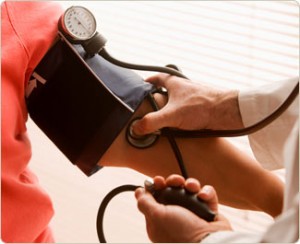 What is Hypertension?
What is Hypertension?Hypertension, or high blood pressure, is a common side effect described as an unusually high amount of force exerted on artery walls by blood. The exact cause of high blood pressure is unknown; however, certain persons may have a higher risk for developing high blood pressure. This includes patients who:
Although hypertension may often go unnoticed, it may produce common symptoms such as:
High blood pressure may be reduced through the use of prescription medicines along with a healthier lifestyle which involves a healthy diet, decreasing consumption of sodium and exercising frequently. Beta-blocker medicines, ACE (angiotensin-converting enzyme) inhibitors, calcium channel blockers, diuretics, and peripheral vasodilators may be effective for treating the hypertension.
Patients who suffer from hypertension should have their condition evaluated by their doctor for professional advice. It is important to treat hypertension as soon as the condition is recognized. Untreated high blood pressure may lead to: